Food loss measurement related News

In Thailand, discovering a better way to waste not, want not
07/12/2023

FAO at COP28 | Agrifood system solutions are climate solutions
23/11/2023
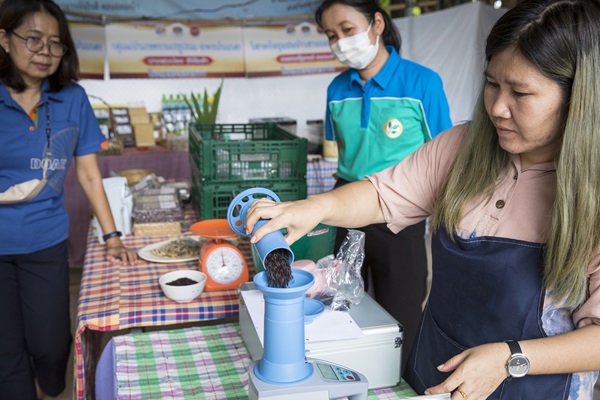
International Day of Awareness of Food Loss and Waste: FAO calls for circular model in agrifood systems
29/09/2023

The #123 Food Loss and Waste Pledge for Climate Action
08/09/2023
FAO #123 Pledge statement is now available.
Visit the Food is Never Waste Coalition page for more.

Knowledge sharing, learning and technical exchange on food loss and waste reduction webinar focus on the Caribbean region
10/11/2022

Investment opportunities and legislation frameworks on FLW. Some relevant FAO resources are available
30/08/2022
Food loss and waste (FLW) is a global burden with a negative impact on the economic, social, and environmental dimensions of sustainable development. The loss and waste of food suitable for human consumption hampers food security and nutrition and hinders the realization of the human right to ...

Knowledge sharing, learning and technical exchange on food loss and waste reduction webinar: Africa
21/07/2022

G20 Indonesia 2022 - Gap Analysis on Food Loss and Waste Indices workshop
21/06/2022

Government of Uganda, FAO, WFP, IFAD for the development of a comprehensive strategy to reduce PHL in grains
31/05/2019
Kampala - Key agriculture stakeholders in Uganda have commended national efforts towards addressing food and nutrition insecurity as well as increasing national income through strategies to reduce post-harvest losses in grains. The vote of confidence in the government was made...

Training of Trainers on FAO Food Loss Analysis methodology
31/05/2018
FAO is organizing a series of Training of Trainers (TOT) to enhance the knowledge and skills of professionals and institutions, through collaboration with institutions, to implement the FAO Food Loss Analysis methodology in order to support evidence-based food losses reduction strategies and policy at national and regional levels.

SAVE the DATE - Official launch of the Food Loss Analysis e-learning course
19/04/2018

MIT study reports improved income, food security and well-being for Ugandan farmers participating in WFP’s Zero Food Loss initiative
20/03/2017
The Massachusetts Institute of Technology (MIT) carried out an independent study about the scalability and adaptability of post-harvest hermetic technologies based on the WFP Special Operation in 2015. The study focused on scalability, adaptability and impact of the project to Ug...

Help shape APHLIS: your open postharvest loss data resource for sub-Saharan Africa
06/03/2017

Post-Harvest Management/Food Loss Reduction workshop in Jinja, Uganda
24/09/2015
The Swiss Agency for Development and Cooperation (SDC) and the UN Rome based agencies (FAO, IFAD and WFP) co-organized a workshop on Post-Harvest Management (PHM) / Food Loss Reduct...

Measuring Food Losses and Food Waste a parallel session at ICAS VII
18/06/2015

Launching the RBA joint project's food loss reduction activities for smallholders in Uganda
13/04/2015
-malabo-declaration-on-agriculture-and-postharvest-losses.tmb-th600x400.jpg?Culture=en&sfvrsn=89f7d970_1)
African Union (AU) Malabo Declaration on Agriculture and Postharvest Losses
29/09/2014
The AU launched 2014 the “Year of Agriculture and Food Security” marking the 10th anniversary of the Comprehensive African Agriculture Development Programme (CAADP) on January 30, 2014 during its 22nd Assembly in Addis Ababa, Ethiopia...
Food loss measurement related Publications
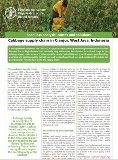
Food loss analysis causes and solutions: Cabbage supply chain in Cianjur, West Java, Indonesia. Fact Sheet
30/09/2023
Cabbage (Brassica oleracea var. capitata) is a popular vegetable to grow among Indonesian smallholder farmers due to high demand and relatively easy cultivation. Post-harvest is a critical stage in the cabbage supply chain because it determines the product saleability and price. However, poor handling practices and careless quality control can lead to significant food loss and consequently reduce the profit margins for all actors along the supply chain.
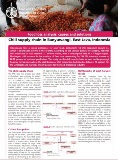
Food loss analysis causes and solutions: Chili supply chain in Banyuwangi, East Java, Indonesia. Fact Sheet.
30/09/2023
Indonesians have a strong preference for spicy food, particularly red chili (Capsicum annum L.), which is abundantly grown in the country. According to the Central Bureau of Statistics, national chili production in 2020 reached 2.77 million tonnes, with a consumption rate of 2.14 kg per capita. The largest chili producer is the province of East Java, accounting for 784 050 thousand tonnes or 28.28 percent of national production.
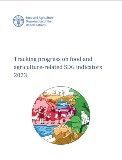
Tracking progress on food and agriculture-related SDG indicators (2023)
25/09/2023
At the mid-point of the Agenda 2030 for Sustainable Development, there is an urgent need to understand where the world stands in eliminating hunger and food insecurity, as well as in ensuring sustainable agriculture. The new report of the Food and Agriculture Organization of the United Nations (FAO), titled Tracking progress on food and agriculture-related SDG indicators, offers analysis and trends on indicators across eight Sustainable Development Goals (SDGs).

Developing Capacity to Reduce Food Loss and Waste in Thailand
01/03/2023
Reducing FLW is not, however, a high priority for many micro, small and medium enterprises (MSMEs) in developing countries. MSMEs often do not quantify the food that is lost in their processing and distribution operations, or wasted in retail, and their real impacts on profitability and the environment.

Food Science and Technology Solutions to Improve Food and Nutrition Security: Reducing Food Loss & Valorizing Food Processing Side Streams
31/12/2022
In 2022, the Institute of Food Technology/Food and Nutrition Security Steering Committee hosted a virtual roundtable discussion on their first challenge, “Food Science & Technology Solutions for Reducing Food Waste and Valorizing Waste Streams” on November 1 – 2, 2022. The goal was to identify current and potential future solutions from food science and technology that can contribute to the reduction of food loss and valorization of food processing side streams.
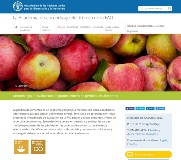
Food loss analysis case study methodology | E-learning course
30/10/2022
Food loss is a complex issue, often with multiple and interrelated causes operating at different levels. This e-learning course introduces the FAO Case study methodology for the analysis of critical food loss points. This method focuses on revealing and analyzing the multidimensional causes of losses in selected food supply chains, identification of critical loss points, and recommendation of feasible food loss reduction solutions and strategies.
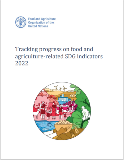
Tracking progress on food and agriculture-related SDG indicators 2022
04/10/2022
Seven years into the 2030 Agenda, there is an urgent need to understand where the world stands in eliminating hunger and food insecurity, as well as in ensuring sustainable agriculture. FAO's new report, “Tracking progress on food and agriculture-related SDG indicators”, offers analysis and trends on indicators across eight SDGs (1, 2, 5, 6, 10, 12, 14 and 15), highlighting areas of progress and areas where further effort is needed.
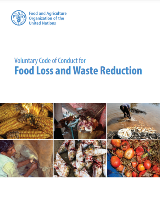
Voluntary Code of Conduct for Food Loss and Waste Reduction
20/07/2022
Following the request of the 26th Session of the Committee on Agriculture (COAG), FAO has developed the Voluntary Code of Conduct for Food Loss and Waste Reduction (CoC). The document was submitted to the FAO Conference for consideration and endorsement, and approved on 15 June 2021.
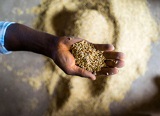
A holistic approach to food loss reduction in Africa: food loss analysis, integrated capacity development and policy implications
10/06/2022
This paper highlights the critical need for a paradigm shift of current research and development programs aimed at food loss reduction, as demonstrated by findings of a project implemented in Burkina Faso, the Democratic Republic of Congo and Uganda by the United Nations Rome-based Agencies (RBAs) – The Food and...
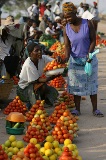
Estimation of nutritional postharvest losses along food value chains: A case study of three key food security commodities in sub-Saharan Africa
01/02/2022
Postharvest losses (PHLs) amplify food insecurity and reduce the amount of nutrients available to vulnerable populations, especially in the world's Low and Middle Income Countries (LMICs). However, little is known about nutrient loss at the various postharvest stages. The objective of our study was to develop a methodology and a...
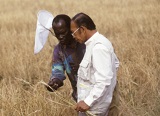
Critical stages for post-harvest losses and nutrition outcomes in the value chains of bush beans and nightshade in Uganda
01/01/2022
The reduction of post-harvest losses (PHLs) has been identified as a key pathway to food and nutrition security in sub-Saharan Africa. However, despite policy prioritisation, knowledge about the severity of PHLs remains scant, especially when it comes to nutrient-dense crops such as African nightshade and bush beans.
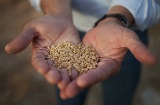
Quantifying Food Loss and Waste in Saudi Arabia
23/08/2021
Based on the findings achieved, recommendations are made to cover the various aspects of the whole food supply chain (FSC) and to aim at more efficiency and higher levels of productivity. Our findings have significant implications by estimating the FLW baseline indicator and providing the different stakeholders of FSC with the optimal actions to do to reduce FLW rates.
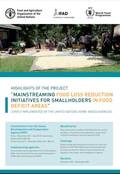
RBA Project brochure
29/06/2021
HIGHLIGHTS OF THE PROJECT “MAINSTREAMING FOOD LOSS REDUCTION INITIATIVES FOR SMALLHOLDERS IN FOOD DEFICIT AREAS” JOINTLY IMPLEMENTED BY THE UNITED NATIONS ROME-BASED AGENCIES

Food loss in Sweden National follow-up methods for increased knowledge about losses and resources in food production
01/02/2021
The report presents follow-up methods on a national level, focusing primarily on food losses, but may also include food waste, in the early stages of the food chain. The methods will be used to gain increased knowledge so that stakeholders throughout the entire food chain can contribute to measures and...

Food loss analyses to identify critical loss points, main causes of losses and to recommend solutions to reduce post-harvest losses
01/01/2021
The UN Rome-based agencies joint project aimed to improve smallholder food security and incomes in food deficit areas by reducing food losses. The Project contributes to the African Union Malabo Declaration (AUC, 2014) in which Member States committed to halve the levels of post-harvest losses by 2025.

Highlights of the project "Mainstreaming food loss reduction initiatives for smallholders in food deficit areas"
01/01/2021
This brochure highlights the achievements and results of a project jointly developed and implemented by the three United Nations (UN) Rome-based agencies (RBA) FAO, IFAD, and WFP from 2013 to 2020, funded by the Swiss Development and Cooperation Agency, that contributes towards the AU Malabo declaration and SDG targets for...

Estimating fish and post-harvest loss measurement in Guyana
20/12/2020
This report presents details about the training workshop and experience gained from testing of the Guidelines on fish loss measurement. It includes situation analysis, training needs assessment (TNA), selection of participants, goal and objectives, training description, preparation of training, delivery of training, and evaluation.
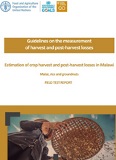
Guidelines on the measurement of harvest and post-harvest losses – Estimation of crop harvest and post-harvest losses in Malawi (maize, rice and groundnuts). Field test report
31/10/2020
A study was conducted in two Agriculture Development District (ADDs) of Malawi, Salima and Lilongwe, to pilot a new methodology for estimating on-farm harvest and post-harvest losses. The study was carried-out with technical support from the Global strategy to improve agricultural and rural statistics (GSARS) of the Food and Agricultural...

Addressing Food Loss and Waste: A Global Problem with Local Solutions
08/09/2020
The report focuses on the role that food loss and waste (FLW) could play in reducing the environmental footprint of food systems while attempting to meet the caloric and nutrient needs of a population expected to increase by 3 billion people in the next 30 years. The performance of the global food system over the last century has been extraordinary.
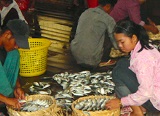
E-learning: Food Loss and waste in fish value chains
01/06/2020
Food Loss and Waste (FLW) in the fisheries sector is a complex issue with multiple and interrelated causes at different levels. Policy makers, the public and private sectors require solutions not only to be economically beneficial, but also to generate or sustain benefits for society.
Food loss measurement related Events
25/ 4
2024
Introduction to the FAO Food Loss Application (FLAPP)
Virtual Event, 25/04/2024
A live introduction of the FAO Food Loss Application (FLAPP). By providing accessible information on food loss through video advisories, the FLAPP empowers farmers, companies, producer associations, and cooperatives to make informed decisions and apply evidence-based solutions. Join us to learn how the FLAPP can empower you to make informed decisions and reduce food losses.
19/ 9
2023
22/9
2023
4th All Africa Postharvest Congress and Exhibition
Addis Ababa (Ethiopia), 19/09/2023 - 22/09/2023
Hosted by the African Union Commission (AUC) at the African Union Headquarters in Addis Ababa, Ethiopia, the congress is being organized by the AUC in collaboration with various partners, including development partners, private sector actors, academic/research institutions, and civil society.
16/ 11
2022
A Climate Imperative: Getting Countries and Businesses Committed to FLW Reduction
Sharm El-Sheikh (Egypt), Hybrid Event, 16/11/2022
Commitments are required from governments and the private sector to set targets and achieve global reduction of food loss and waste. The event included a diverse set of pledges and highlights the accomplishments of governments, businesses and financial institutions.
4/ 11
2022
7/11
2022
Indo-German Innovation Pavilion on Post-Harvest Loss Management
Chandigarh (India), Hybrid Event, 04/11/2022 - 07/11/2022
Agro Tech India Exhibition November 2022: Protection of Crops, Protection of Future
On this year´s Agro Tech India, PHL is presented through the initiative “Fasal Ki Raksha, Bhavishya Ki Suraksha” (Protection of Crops, Protection of Future). Its objective is to display innovations focused on mechanisation, digitalisation, and the use of local post-harvest methods. 14 start-ups and a co...
14/ 9
2017
Evaluation of micronutrient losses from postharvest food losses (PHL) in Kenya, Cameroon and India – Implications on micronutrient deficiencies in children under 5
Douala (Cameroon), 14/09/2017
This seminar organized by the FAO Nutrition and Food Systems Division (ESN) will present the project on food losses and waste (FLW) and Nutrition developed by the Nutrition Assessment and Scientific Advice team (ESNA) with support from the Save Food Team.
28/ 3
2017
31/3
2017
FIRST AFRICA-WIDE POSTHARVEST FOOD LOSS REDUCTION CONFERENCE AND EXHIBITION
Nairobi (Kenya), Hybrid Event, 28/03/2017 - 31/03/2017
Nairobi, Kenya - The World Food Preservation Center® LLC in conjunction with its sister University (University of Nairobi) and a consortium of Universities and a Research & Development Institution in Africa are organizing the First Africa-wide Posthar
26/ 10
2016
28/10
2016
7th International Conference on Agricultural Statistics - Modernization of Agriculture Statistics in Support of the Sustainable Development Agenda
Rome (Italy), 26/10/2016 - 28/10/2016
Rome, Italy - ICAS VII is organized by the Italian National Institute of Statistics, in close collaboration with the Food and Agriculture Organization of the UN (FAO). The Conference focuses on bringing together research and best practices in the field o
11/ 1
2016
13/1
2016
Postharvest Education Foundation closing workshop 2015
Jimma (Ethiopia), 11/01/2016 - 13/01/2016
Jimma, Ethiopia - The Postharvest Education Foundation will be holding a workshop in Jimma, on the campus of Jimma University. Target audience of this event are practitioners who are interested in small-scale postharvest "best practices" and planning post
4/ 12
2015
Launch of the G20 Technical Platform on the Measurement and Reduction of Food Loss and Waste
Virtual Event, 04/12/2015
Rome, Italy - During the 153rd session of FAO Council, this side event will launch the FAO and International Food Policy Research Institute (IFPRI) Technical Platform on Food Loss and Waste and highlight knowledge and concrete steps.
4/ 10
2015
7/10
2015
The First International Congress on Postharvest Loss Prevention
Rome (Italy), 04/10/2015 - 07/10/2015
The ADM Institute for the Prevention of Postharvest Loss at the University of Illinois is organizing an International Congress on "Developing Measurement Approaches and Intervention Strategies for Smallholders" to be held in Rome, Italy. This congress wi
14/ 9
2015
25/9
2015
Course Lost Harvest and Wasted food (fellowship opportunity)
Wageningen (Netherlands), 14/09/2015 - 25/09/2015
Large contrasts exist in how we manage the food we have available. While in parts of our societies there is a shortage of food, in the urban and wealthier communities, good food is thrown away only because it is beyond its sell-by date. Optimising the ‘fa
8/ 9
2015
10/9
2015
Post-Harvest Management (PHM) /Food Loss Reduction (FLR) Workshop
Jinja (Uganda), Hybrid Event, 08/09/2015 - 10/09/2015
Jinja, Uganda - The Federal Department of Foreign Affairs FDFA Swiss Agency for Development and Cooperation SDC - Global Cooperation/Global Programme Food Security is organizing a workshop on Post-Harvest Management (PHM) /Food Loss Reduction (FLR). Parti
20/ 7
2015
15/8
2015
PHL course by ADM Institute and Coursera
Virtual Event, 20/07/2015 - 15/08/2015
The ADM Institute's online course "Global Postharvest Loss Prevention: Fundamentals, Technologies and Actors" will be offered for a second time starting July 20. This 4-week online course is free to all and registration is now open on Coursera. Join parti
24/ 6
2015
26/6
2015
The 2015 Conference on Postharvest and Agro-Processing Extension in Africa
Addis Ababa (Ethiopia), 24/06/2015 - 26/06/2015
Addis Ababa, Ethiopia An important discussion on how Africa will reduce postharvest losses to provide more and nutritious food, and create wealth and security for its people through the development of the post-production sector of the value chain. The C
9/ 3
2015
11/3
2015
Conference on Food Losses and Waste Initiative: From Prevention to Valorisation
Abu Dhabi (United Arab Emirates), 09/03/2015 - 11/03/2015
As the reduction of food waste must be part of a portfolio of solutions needed to feed the world more sustainably, GFIA 2015 will include a major focus on the important issues. In partnership with Wageningen UR this side event will comprise a two-day, sol
23/ 2
2015
27/2
2015
The Postharvest Education Foundation - Small scale Postharvest Handling Technologies Short Course/Study Tour
Arusha (Tanzania), 23/02/2015 - 27/02/2015
The Postharvest Education Foundation offers global postharvest e-learning programs, training materials and participatory workshops on appropriate postharvest technologies for participants in more than 15 developing countries. In association with local par
2/ 2
2015
1/3
2015
Global Postharvest Loss Prevention: Fundamentals, Technologies, and Actors. New online course
Virtual Event, 02/02/2015 - 01/03/2015
The ADM Institute for the prevention of postharvest loss of the Illinois University offers a free online course. The course provides an overview of the issue of postharvest loss of grains by exploring essential physical, technical, and social dimensions o
15/ 10
2014
Exclusive Food Tank Webinar Series: Reducing Food Losses From Farm to Market
Virtual Event, 15/10/2014
This webinar will present current evidence of high levels of global postharvest food losses, identify the causes and sources of losses occurring between the farm and the market, and provide information on a wide range of options for using simple, cost eff
14/ 10
2014
41st session of the Committee on World Food Security (CFS) Side event ‘Getting into Action on Food Losses and Waste (FLW)’
Rome (Italy), 14/10/2014
41st session of the Committee on World Food Security (CFS) Side event ‘Getting into Action on Food Losses and Waste (FLW)’ co-organized by the Swiss Agency for Development and Cooperation (SDC) and the Rome-based UN Agencies Food and Agriculture Organizat
13/ 10
2014
13/1
2015
Ongoing online discussion forum on losses occurring along maize supply chains: levels, causes, solutions and success stories
Virtual Event, 13/10/2014 - 13/01/2015
“What are your experiences in levels of grain losses, particularly maize? How were they measured? What solutions can be/were implement to reduce these losses? What success stories can you share with the Community? ” In Kenya, the SAVE FOOD Initiative and
